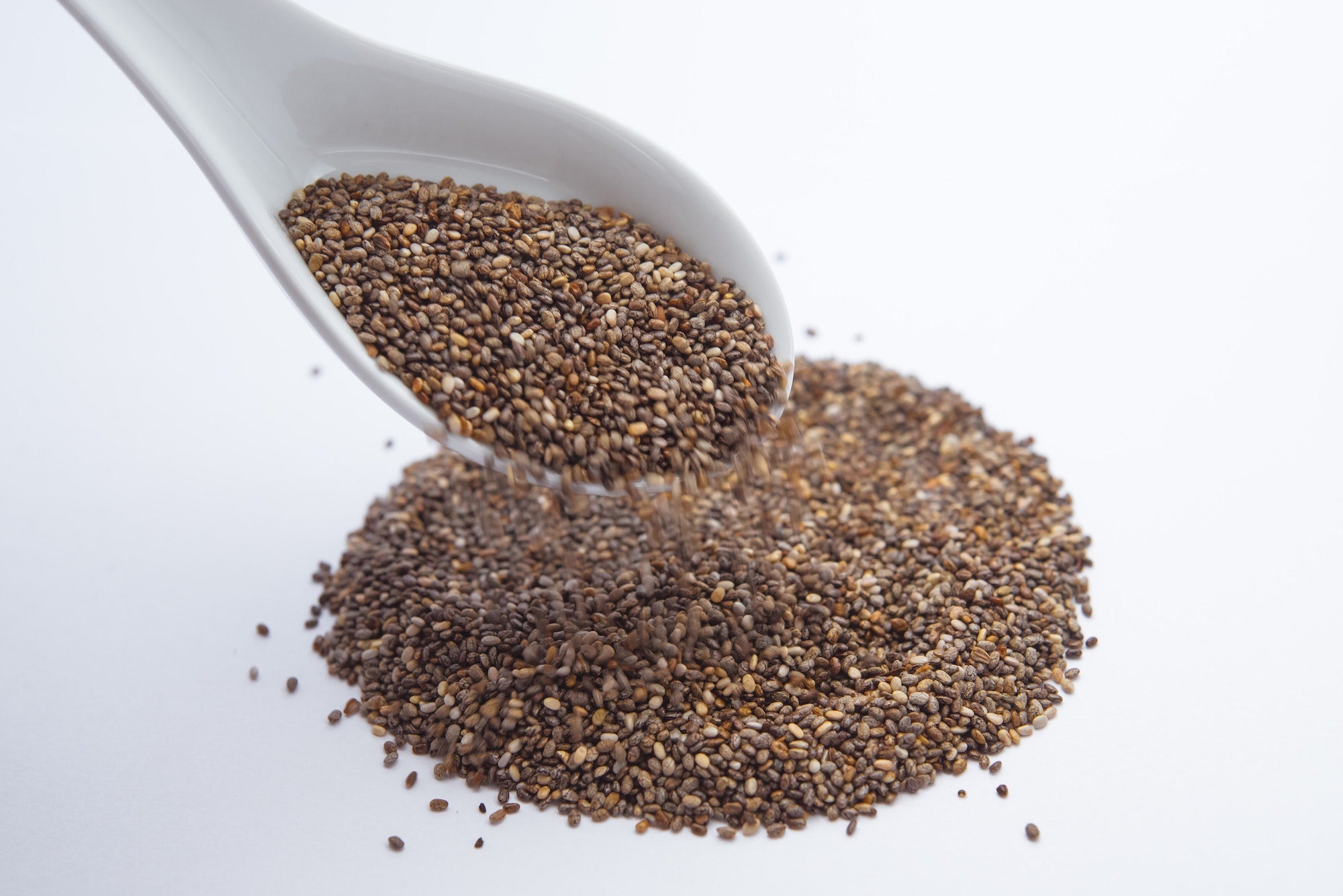
Egg Substitutions in Plant-Based Baking
by Nea ArentzenIf you enjoy baking, you’ve most likely noticed by now that almost all recipes call for eggs with the exception of certain breads, no-bake recipes, and some cookies. Eggs help to create structure and stability, act as a binder between other ingredients, and add both flavor and moisture. They are typically an essential ingredient in most baked goods from cakes to cookies, meringues, and more, however, for those following a plant-based diet, eggs are not an option.
Fortunately, there are many plant-based egg substitutes that can provide similar properties to eggs in recipes. This article will compare different egg substitutes for plant-based baking, including flax and chia eggs, mashed bananas, applesauce, nut butter, aquafaba, and commercial egg substitutes.
What to Know Before Choosing An Egg Substitute
Eggs are one of the more challenging ingredients to replace in a recipe as they play such a vital role in baking and as there aren’t many commercially-made egg substitutions yet. When choosing to swap out eggs in a recipe, it’s important to take the initial weight into consideration so that you can swap it at a 1:1 ratio. A large egg typically weighs around 57 grams (or 2 ounces), which means you’ll want to weigh out your egg substitute to that same amount. In case you don’t have a kitchen scale, we’ve included the estimated amount of each replacement you should use.
Flax & Chia Eggs
Flax and chia eggs are exactly what they sound like–they’re a plant-based egg substitute made from either ground flaxseeds and water, or chia seeds and water. They have a thick, sticky texture that can bind ingredients together in recipes, similar to eggs. Because of their thick and slimy texture, we find that flax eggs tend to work a bit better than chia eggs but feel free to experiment with either. One thing to note if you’re making a flax egg is that it has to be ground flax seeds, not whole.
Although flax and chia eggs both work as great binding agents, they unfortunately don’t provide much lift (or any for that matter) to baked goods. This means they’re more suitable for recipes that don’t require any whipping or much rise, such as cookies and brownies. Alternatively, if you’re trying to make a fluffy and light cake with a flax egg, you probably won’t have much luck.
Mashed Banana
Mashed banana is another popular egg substitute in baking when it comes to vegan or plant-based recipes. With their high water content, bananas help provide moisture to baked goods, as well as act as a binding agent. One mashed banana can replace one egg in recipes such as cakes and pancakes, according to Delish. However, it's important to note that mashed
bananas may not work for every recipe and may not provide the same rise and texture as eggs. It's also important to make sure that the banana flavor is compatible with the other ingredients in the recipe.
Applesauce
In terms of moisture and acting as a binding agent, applesauce performs very similarly to mashed bananas in baking recipes. When using applesauce as an egg substitute, it's generally recommended to use 1⁄4 cup of applesauce to replace one egg. However, as is the case with bananas, the texture of your baked goods may be denser and moister due to the lack of eggs, and its inability to rise properly. If you choose to use either applesauce or mashed banana you may want to increase the amount of baking powder you use. We’d recommend using applesauce in place of eggs for recipes such as apple spice cake, applesauce cake with chocolate chips, muffins, or waffles.
Nut Butter
Because of how prevalent nut allergies are, we understand this one won’t work for everyone. However, because of its high fat and protein content, it works great as an egg substitute in recipes that are a bit denser and chewier, such as brownies or cookies. You can also use nut butters in cakes, however, you’ll have to be extra mindful of how much you use. We’d recommend using 3 tablespoons of nut butter in place of one egg. Also, keep in mind that some types of nut butter (such as peanut butter) have a stronger flavor than others.
Aquafaba
Aquafaba is the liquid from a can of chickpeas, or the liquid that the chickpeas cook in. It’s mostly clear, somewhat thick and sticky, and although it’s for the most part flavorless, does have a mild chickpea flavor. Because of its ability to whip into peaks (much like egg whites), it’s become a popular egg white substitute. According to Gemma Stafford of Bigger Bolder Baking, ”Just 1 tablespoon of aquafaba is about the same as one yolk, 2 tablespoons are the same as one egg white, and 3 tablespoons can stand in for the entire egg.” You could use aquafaba to make meringues, fluffy cakes, and crispy waffles.
Commercial Egg Substitutes
When it comes to commercial egg substitutes, there are a few brands you could choose from. According to Southern Living “Bob's Red Mill and Ener-G make commercial egg replacements available at most grocery stores.” It’s also worth noting they are easily purchasable online. “These products are a combination of starches, a leavening agent, and psyllium husk fiber (a gluten-free plant fiber that aids in thickening). Each brand provides guidelines on how to use their product in various baked goods...”, they add.
Takeaway
Plant-based baking can be just as enjoyable and delicious as traditional baking, thanks to the variety of egg substitutes we mentioned above. Remember that choosing the right egg substitute depends on the specific recipe and desired outcome, including but not limited to flavor, texture, and rise. And, although we find the ones listed in this article work well, you can
check out more egg substitutes here at The Kitchn and experiment to find which one works best for you!
